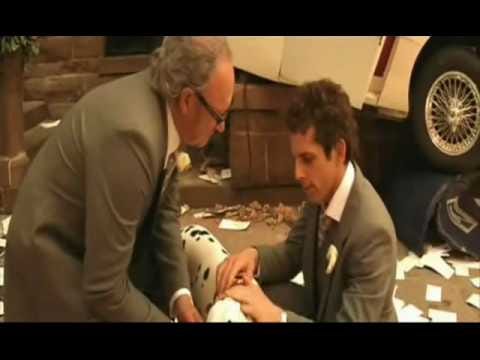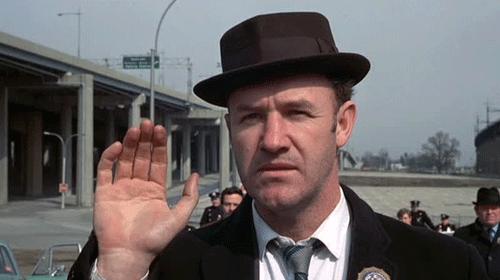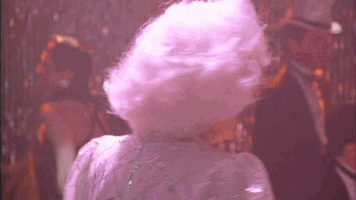Hi, all! Dame Sophie here with a quick intro to Dame Karen’s triptych of reminiscences and reflections on the career of Gene Hackman. Here at the Dames Aerie, we’re all pretty gutted by his death. He had what seems like a good, long life and leaves behind a durable body of work, but the circumstances of his death, and the death of his wife and apparent sole caregiver Betsy Arakawa, not to mention one of their dogs, are harrowing and cast a pall over an event that was already plenty sad.
It’s way too easy for people — even people who are quite successful, people with access to in-home healthcare, who you’d think would have a network of care to sustain them and back each other up — to fall through the cracks. I don’t think anyone in the US needs a reminder that our social safety net is so precarious that being in community with our communities is more essential than ever. Check in with your people. Invite them over to watch a Gene Hackman film, or for whatever activity suits you best. We’re all sensitive people who need people.
1. Copaganda - The French Connection (1971)
Last week, I watched The French Connection for the first time in probably 20 years. All I had remembered was the train crash and car chase. It starts hard with a laughably on-the-nose stereotype—a French detective marching down the street in Marseille, carrying a naked baguette under his arm. The detective is soon murdered by a hitman who finishes his assignment by taking a big bite out of said baguette and flinging the bloody rest at the detective’s corpse.
The next thing you know, we’re in Brooklyn, and Gene Hackman’s Jimmy “Popeye” Doyle, a hapless, clumsy, violent jackass cop, is undercover as the grossest Santa Claus in the world, chasing a drug dealer down the street to beat him up in an alley, grinning and leering his smug face off the whole time. Popeye Doyle is based on a real cop who, unlike Doyle, successfully brought down a vast heroin ring (spoiler alerts for a 54-year-old movie, I guess.) The role made Gene Hackman a star and an Oscar winner, placing him in the highest pantheon of Hollywood tough guys. But the guy sucks, and Hackman knew it! As Geoffrey Macnab wrote in The Independent, Popeye Doyle “is violent, impulsive, possibly racist [NOTE: he is incredibly, explicitly racist] and doesn’t care at all for the kids he is pretending to entertain. He’s a pug-faced curmudgeon with an alcohol problem and he is a bad Santa to boot. It is not even clear he is an effective cop. He works on intuition but his “brilliant hunches” continually backfire.”
Hackman reportedly threatened to quit the movie because he found the character so disgusting. In a rare 2021 interview with Hannah Frishberg from The New York Post, Hackman wrote that he hadn’t watched the movie since its first post-production screening, and “if the film has a legacy, I am not sure what that would be. At the time, it seemed to me to be a reverent story of a cop who was simply able to solve and put a stop to a major crime family’s attempt to infiltrate the New York drug scene.” I mean, sort of? The movie ends with him accidentally shooting an FBI agent as his target blithely disappears and then he’s simply transferred to another department. Per Macnab, “almost everybody roots for Popeye” thanks to Hackman’s portrayal, which includes “a long-suffering stoical dignity that verges on the comic…His porkpie hat gives him a cartoonish quality. Somehow, against considerable odds, the rogue cop comes across as perversely sympathetic.”
Watching it in 2025, all I could think about is the fact that he skillfully and wittily portrays a cop who is a genuinely bad person who is bad at his job, but is never truly punished for it. In fact, he ends up lauded and celebrated for it for years to come—a little TOO REAL, you know what I mean? That’s not Doyle’s outcome in the movie (and I’ve never seen The French Connection II, so I don’t know what happens there), but it was the character’s outcome in popular culture. Significantly, the movie came out during wild shifts in the general culture, both within and without the movies. It very deliberately “wasn’t a counter-culture drama with psychedelic references like Easy Rider (1969) and Head (1968). Nor was it one of those movies about outsiders chafing against mainstream society like Five Easy Pieces (1970) and Midnight Cowboy (1969). It was a hard-boiled cop thriller shot in dirty realist fashion” (Macnab again.) Hackman “gives [Doyle] a soulful quality and just a hint of vulnerability. It’s a warts and all performance that seems infinitely richer than those of sleeker, more conventional leading men.” It also might have kicked off the modern never-late-train (haha train, because, you know, The French Connection train scene, sorry) of villains embraced as antiheroes—did Popeye Doyle walk so, say, Walter White could run (his entire life and the lives of the people he supposedly loves into the ground)? Or am I just doing a Charlie Brown had hoes here? Let me know in the comments!
2. G.O.P.-aganda - The Birdcage (1996)
The first thing to keep in mind is that NATHAN LANE himself was not publicly out when The Birdcage premiered in 1996. When you reminisce about the ‘90s, as I myself am wont to do on occasion, please remember that Nathan! Lane!!!!!! did not come out to the world until 1999 in an interview with none other than Bruce Vilanche in The Advocate, noting, “The truth is, nobody cared about my sex life before The Birdcage. Now they call me from across the street. Of course, they still don’t know my name. “Hey, Birdcage!”” He goes on to say that he came out to his own family at 21, never hid the fact that he was gay, just “assuming everyone knew,” and was inspired to “officially” come out when, post-Birdcage, he got “letters from young people thanking me for being out there.” Representation is important, and, truly, there was next to none in the mainstream at that point, so that’s what we got.
Gene Hackman plays a conservative senator who says all sorts of ridiculous shit that is supposed to be over the top and laughably ignorant, ridiculous shit that we currently hear every fucking day from all sides. He’s embroiled in a scandal because his co-founder of the “Coalition for Moral Order” died while assaulting a Black, underage sex worker, which is, of course, played for not at all funny LAFFS in 1996 in a way that would not happen today. On the other hand, in 2025, several politicians, including the current president of the United States, have had absolutely no problems at all getting reelected after convictions for sexual assault, let alone knowing someone who committed such a crime.
Anyway, the senator’s daughter and the son of a gay nightclub owner (Robin Williams as Armand) and the nightclub’s star performer (Nathan Lane as Albert) meet at college and want to get married. Somehow, Armand and the son decide that they need to hide Albert and bring in the kid’s absentee birth mother to fool the conservative couple. She runs late, so Albert puts on what is essentially a Mrs. Doubtfire costume and goes to it. There’s all sorts of confusion, double entendres, a set of dishes portraying an orgy, slapstick, and wig-straightening. Eventually, everyone pitches in to help the disgraced senator escape from the paparazzi by putting him in drag and making him dance to “We Are Family,” during which he hilariously pleads, “Don't leave me here! I don't want to be the only girl not dancing!”
There’s a happy ending with an 18- and 20-year-old getting married as a drag queen intones, “Bob Dole is gorgeous!” It’s absurd, corny, dated, and impossible to imagine happening in any form at all nearly 30 years later, for better and for worse.
It’s also, with some wildly yikes!!! exceptions, very funny! The cast is perfect—along with Williams, Lane, and Hackman, there’s Dianne Wiest, Hank Azaria, and Christine Baranski in the mix, and a pre-Ally McBeal Calista Flockhart plays the daughter! Elaine May adapted the screenplay, and her comedy partner, Mike Nichols, directed, making this the first time they collaborated on a movie together! According to May’s Wikipedia page (sorry), the duo of Nichols and May, which started in 1957, became popular because they had “both snob and mob appeal,” skewering stereotypes and making fun of modern culture while being very much a part of it. It makes sense that they’d be tapped in 1996 to helm the first mainstream movie to present gay people having fun and enjoying themselves. (Just imagine if ACTUAL QUEER PEOPLE had been given that opportunity, though!)
The movie was an enormous hit, opening at number one at the box office, where it stayed for four weeks and was the seventh highest-grossing movie of the year. My question is: Did this movie accidentally invent the concept of “love is love”? When Albert is revealed to be a man, he approaches the senator and says, “I don’t know if this helps, but I want you to know that I meant every word I said to you about a return to family values and a stricter moral code.” Would straight audience members have been as charmed and accepting of the couple in The Birdcage without this speech? Do the overwhelming public acceptance of marriage equality and the eventual legalization of such unions 19 years later owe it all to Nathan Lane, a soon-to-be Official Out Gay, assuring Gene Hackman, one of the all-time classic tough guys, that ALL he wants is their families to both be considered traditional families?
In a 2019 interview with The Morning Call, Nathan Lane called the original French movie, La Cage Aux Folles, “subversive in the fact that the gay people are the heroes and the straight people are the villains,” and said of The Birdcage, “Homophobia is still alive and well but there’s something about that film that touches people because it’s ultimately about family, what you do for your family, why you love your family even though they drive you crazy. Then ultimately — not to sound corny — it’s about love. It’s about love in both families and coming to accept one another in their differences.” In a recent article in The Advocate, John Casey wrote, “Hackman’s Sen. Keeley was forced to navigate a world he fundamentally opposed, two gay men raising a child. By the film’s end, after an evening of absurdity, gender-bending disguises, and emotional revelations, Keeley begrudgingly accepts that love and family are not bound by traditional definitions. I dare say that that film, Hackman’s presence in it, and his character’s transformation helped start a broader cultural shift in what being a family meant…It was how The Birdcage used Hackman’s conversion, both literal and ideological, to illustrate the reality of diverse, loving families.”
3. Papa-ganda - The Royal Tenenbaums (2001)
These two scenes, man. Heartbreakingly brutal for anyone who’s ever had a falling out with a loved one that DIDN’T get patched up before said loved one died and now it’s too late.
[for the next one, I mean the part that starts at 1:28 specifically, although the whole thing is good]







Gene Hackman is just one of those lovable people. I am so sorry it ended the way it did, but as you twobossydames say, we all need a reminder to keep up with connections that matter.
Thank you for inspiring me to re-watch these films!